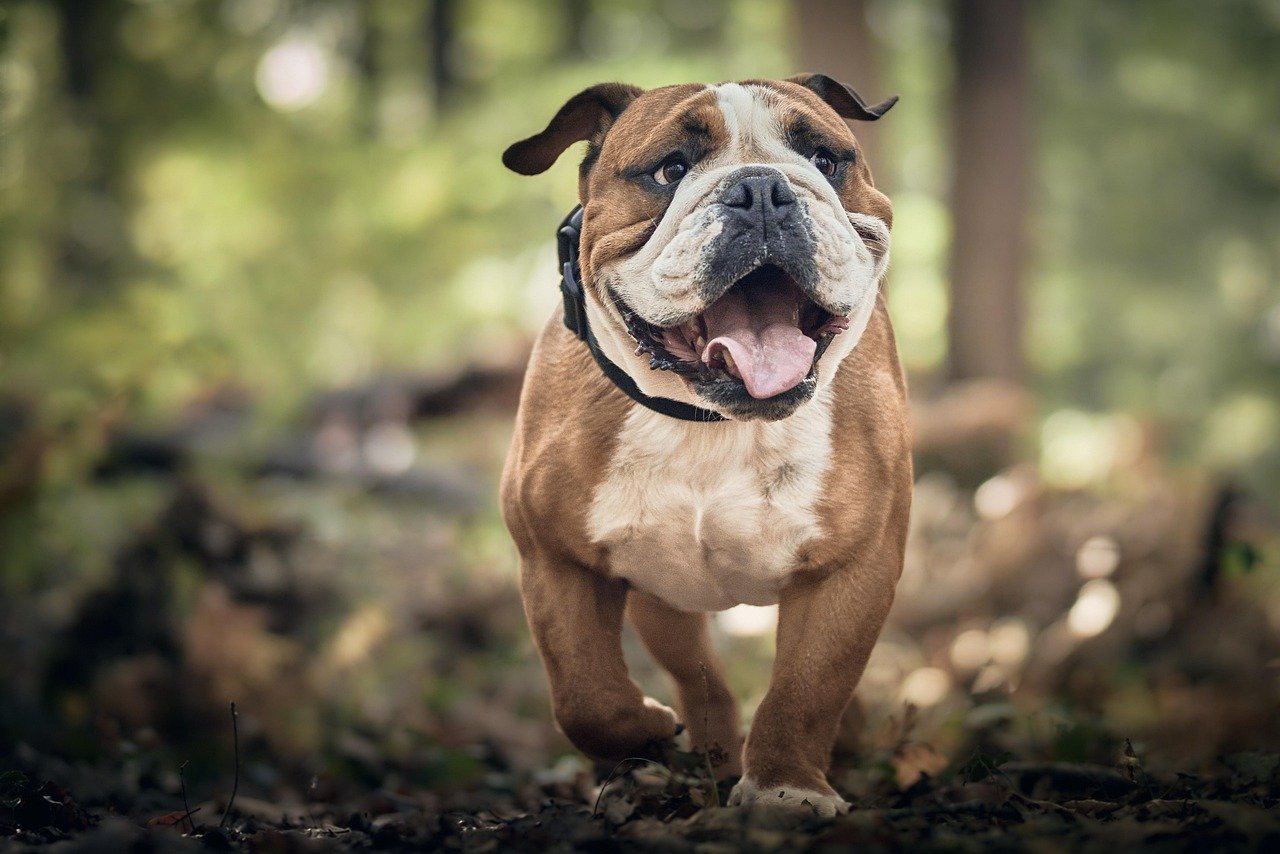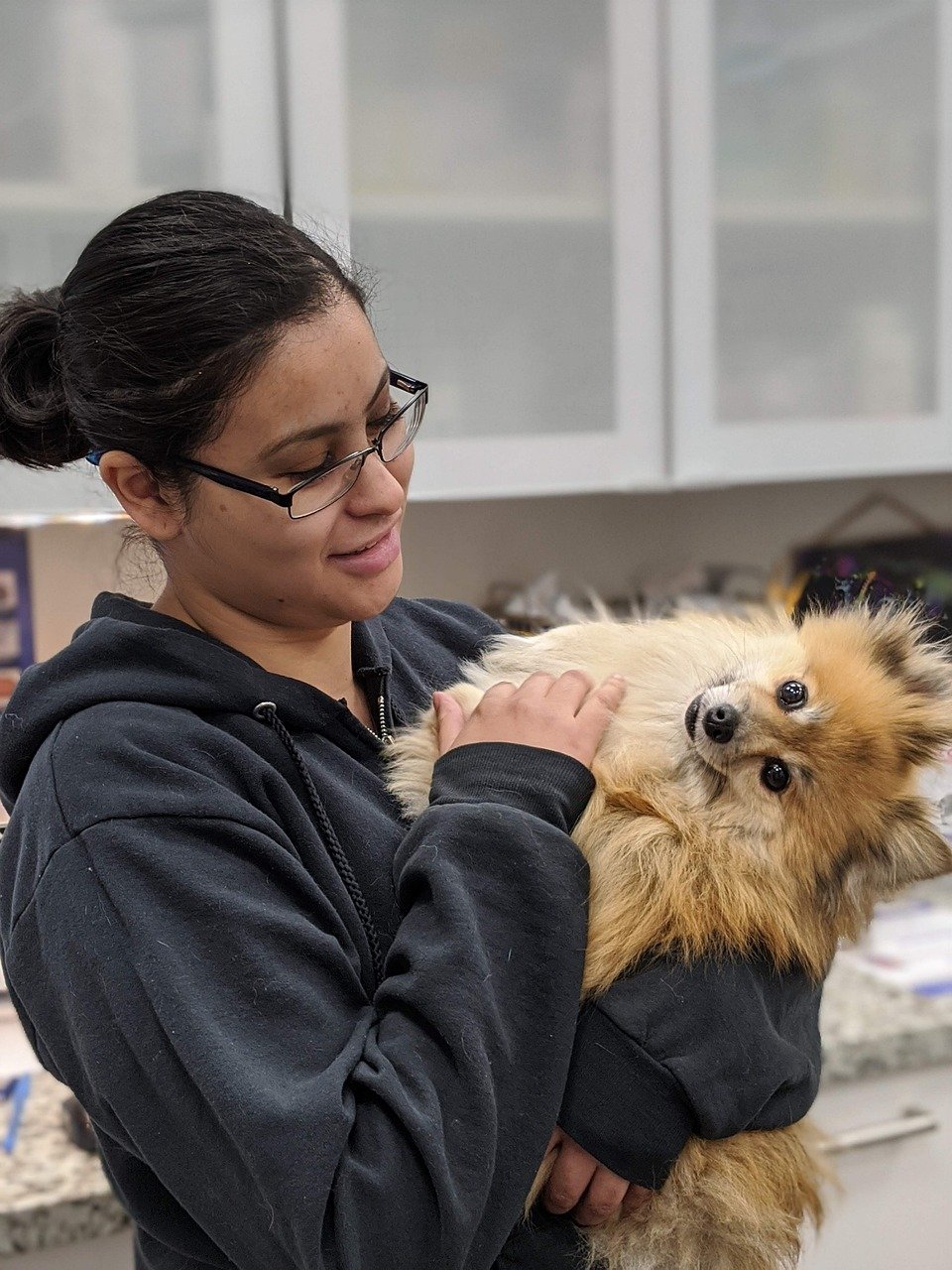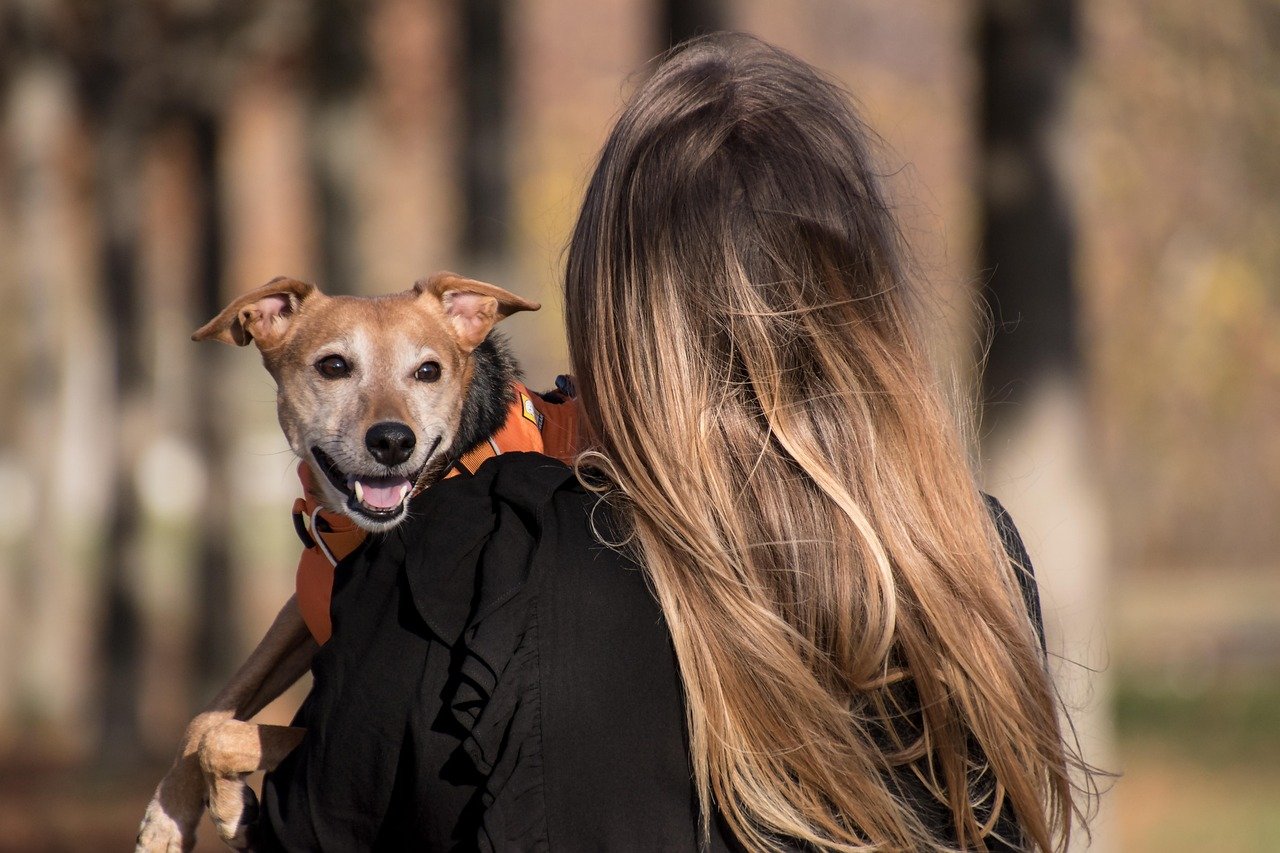Have you ever noticed your dog cower when you raise your voice, or shy away when you reach out your hand too quickly? Dogs, especially sensitive ones, can be deeply affected by our actions—sometimes in ways we don’t even realize. It’s both heartwarming and heartbreaking how closely our furry friends watch us, decoding our every move. If you’ve ever wondered why your pup seems anxious or withdrawn, you’re not alone. Understanding which human behaviors upset sensitive dogs, and how to nurture their delicate spirits, can transform your relationship and make your home a sanctuary for your loyal companion. Let’s pull back the curtain on the surprising things we do that can trouble our sensitive pups—and discover loving ways to help them thrive.
Raising Your Voice: The Hidden Harm in Loud Tones
Dogs may be our loyal companions, but beneath their wagging tails and eager eyes lie complex emotions—especially in those with more sensitive temperaments. Just like humans, sensitive dogs can be deeply affected by the energy, tone, and behavior of the people around them. While we often act with the best intentions, certain everyday habits can unintentionally cause stress, fear, or confusion in these emotionally attuned pets. Understanding what unsettles a sensitive dog is the first step toward building a more compassionate and secure environment.
Sensitive dogs often react strongly to raised voices, even if you’re not angry at them. Yelling or speaking sternly can send shivers down their spine, making them feel unsafe or fearful. Dogs have finely tuned hearing, so what seems like normal volume to us may feel overwhelming to them. If you’ve ever seen your dog tuck its tail or slink away during a heated conversation, it’s not just the words—they’re picking up on the intensity. Over time, frequent loud tones can erode trust, making your pup anxious even during calm moments. Imagine being a child in a room where adults argue loudly; it’s unsettling and confusing. That’s how your sensitive dog feels. Speaking softly and calmly, even when correcting behavior, helps build a sense of security and trust.
Sudden Movements: How Quick Actions Startle Sensitive Pups
Have you ever noticed your dog flinch when you move your arms quickly or stand up suddenly? Sensitive dogs are especially alert to body language, and abrupt movements can startle them. This is even more true if they have a history of trauma or are naturally timid. To a sensitive dog, a fast gesture might signal danger or unpredictability. Think of it like someone jumping out from behind a door—your heart skips a beat, right? For sensitive dogs, these moments happen every time we make sudden moves. Slowing down, approaching gently, and giving a warning cue (like softly calling their name) can reduce their anxiety and make them feel safer.
Ignoring Signs of Stress: Missing the Silent Pleas
Dogs communicate stress in ways that are easy to overlook: licking their lips, yawning, turning away, or flattening their ears. Sensitive dogs use these signals as silent pleas for understanding. Unfortunately, many people miss these cues, thinking the dog is just being quirky. When a dog’s stress signals are ignored repeatedly, they may shut down emotionally or even develop behavioral issues. Imagine trying to tell someone you’re upset, but they never notice or respond—that’s how a sensitive dog feels. Paying attention to body language and responding with comfort or space shows your dog that their feelings matter.
Inconsistent Routines: The Struggle With Unpredictability
Sensitive dogs thrive on routine and predictability. Sudden changes in feeding times, walks, or daily habits can throw them off balance. When life gets hectic and routines slip, these dogs may become anxious or even physically unwell. It’s like having your alarm clock change times every day—you’d feel frazzled too! Dogs look to us for stability, and when we provide it, they relax and blossom. Keeping a consistent schedule for meals, play, and rest helps sensitive pups feel secure and confident.
Harsh Discipline: The Damage Done by Punishment

Using harsh discipline—like yelling, hitting, or using shock collars—can devastate a sensitive dog’s spirit. Even stern looks or sharp words can be enough to crush their confidence. Sensitive dogs are eager to please, so punishment often leads to confusion, fear, and withdrawal rather than improved behavior. Imagine being reprimanded harshly for a mistake you didn’t understand; it breaks trust and makes you fearful of trying. Gentle, positive reinforcement works wonders by encouraging good behavior without causing emotional harm.
Neglecting Quality Time: The Pain of Being Overlooked
Sensitive dogs bond deeply with their humans. When they’re regularly left alone or ignored in favor of screens and busy schedules, they feel lonely and rejected. Dogs are social creatures, and sensitive pups are especially attuned to social dynamics. If your dog waits eagerly by the door or whines when you leave, they’re telling you they need more connection. Taking a few minutes each day for focused play, cuddles, or quiet time together can make all the difference in their emotional well-being.
Overwhelming Social Situations: When Too Much Is Too Much
Crowded gatherings, loud parties, or even busy parks can overwhelm a sensitive dog’s senses. While some dogs thrive on excitement, sensitive ones may hide, shake, or try to escape. Forcing them into crowded or noisy environments can leave them feeling panicked and unsafe. Imagine being an introvert at a wild concert—it’s exhausting and stressful! Respecting your dog’s limits and providing a quiet retreat during social events helps them cope and recharge.
Forcing Unwanted Interactions: The Pressure to “Be Friendly”
Many people expect dogs to greet every guest or play with every dog at the park, but sensitive pups often need more time and space. Forcing them into situations where they must interact before they’re ready can create lasting fear and mistrust. It’s like being pushed into a conversation with a stranger when you’re not in the mood. Allowing your dog to approach new people and animals at their own pace fosters confidence and helps them feel in control of their world.
Lack of Mental Stimulation: The Boredom Blues
Sensitive dogs are often bright and curious. When their days lack variety and stimulation, they can become bored, anxious, or even destructive. Picture being stuck in a room with nothing to do—it’s enough to make anyone stir-crazy! Puzzle toys, training games, and scent work are great ways to engage your dog’s mind and keep them happy. Changing up the routine with new toys or exploring different walking routes can provide much-needed excitement.
Ignoring Physical Discomfort: Overlooking Pain or Illness
Sensitive dogs are sometimes experts at hiding pain, but subtle changes in behavior—reluctance to play, restlessness, or being unusually quiet—can signal discomfort. Dismissing these signs as “just being sensitive” can allow health issues to worsen. Imagine having a headache every day, but no one seems to notice or care. Regular check-ups, gentle handling, and monitoring for changes in mood or activity help ensure your sensitive dog stays healthy and comfortable.
Gentle Touch: Soothing Souls With Soft Hands
For sensitive dogs, gentle touch is like a warm hug on a cold day. Slow, soft strokes reassure them that they are safe and loved. Rubbing behind the ears, softly scratching the chest, or simply resting your hand gently on their back can work wonders for their sense of security. Avoiding rough play or heavy-handed pats ensures your dog never feels threatened. Gentle touch builds trust and can even calm an anxious mind in the middle of a storm.
Predictable Routines: Creating a World of Comfort
Establishing a consistent daily schedule is one of the kindest gifts you can give a sensitive dog. Regular meal times, daily walks at the same hour, and predictable bedtime routines help them know what to expect. This sense of order reduces anxiety and gives your dog the confidence to relax and enjoy life. Just like children thrive on structure, so do sensitive pups. Even small routines, like a bedtime treat or a morning cuddle, can become anchors in their day.
Positive Reinforcement: Encouraging With Kindness
Using treats, praise, and affection to reward good behavior helps sensitive dogs flourish. Instead of focusing on what they do wrong, highlight what they do right. Every time your dog makes a positive choice, celebrate it with a cheerful word or a tasty snack. This approach builds self-esteem and teaches them that they’re valued for who they are. Imagine a teacher who always notices your strengths—it makes you want to try even harder.
Providing Safe Spaces: A Sanctuary to Retreat
Sensitive dogs benefit greatly from having a quiet, cozy spot where they can retreat when feeling overwhelmed. This might be a crate with a comfy blanket, a quiet room, or even a corner with their favorite toys. When the world feels too big or loud, this safe space acts like a security blanket, helping them self-soothe. Let your dog choose their own retreat, and make sure it’s always accessible. Respect their need for alone time without forcing them to interact.
Gradual Socialization: Building Confidence Step by Step
Introducing new people, animals, or environments slowly helps sensitive dogs build confidence without fear. Start with short, positive experiences and gradually increase the level of challenge. If your dog is nervous around strangers, invite one calm friend over at a time and reward relaxed behavior. Each small victory builds their trust in you and the world around them. Think of it as dipping a toe into water before diving in—slow and steady wins the race.
Quality One-on-One Time: Deepening the Bond
Nothing means more to a sensitive dog than focused attention from their favorite human. Setting aside special time—whether it’s a quiet walk, a game of fetch, or simply sitting together—nourishes their heart and soul. These moments tell your dog, “You matter to me.” Over time, the bond grows stronger, and your dog will look to you for comfort and reassurance in stressful situations. It’s a simple but powerful way to make your dog feel truly cherished.
Respecting Their Limits: Listening With Empathy
Paying attention to your dog’s signals and honoring their boundaries is the ultimate act of love. If your dog pulls away from a certain visitor or seems nervous in a new place, don’t force them to push through it. Instead, offer gentle encouragement and let them set the pace. Just like people, dogs have unique personalities and comfort zones. Listening with empathy shows your dog that you respect their feelings and will always protect them.
Engaging Their Senses: Enriching Life With New Experiences

Sensitive dogs often delight in gentle sensory experiences—like sniffing new scents on a walk, feeling the grass beneath their paws, or listening to soft music. Providing opportunities for sensory enrichment keeps their minds active and spirits high. Rotate toys, explore new walking routes, or introduce calming sounds at home. Each new experience, handled with care, helps your dog grow more confident and joyful.
Regular Health Checks: Caring Beyond the Surface

Routine visits to the vet, proper grooming, and monitoring for changes in appetite or behavior are crucial for a sensitive dog’s well-being. Addressing health concerns promptly prevents discomfort from turning into distress. Gentle grooming sessions can also be a bonding experience, as long as they’re done with patience and kindness. Healthy dogs are happy dogs, and sensitive pups need a little extra vigilance to stay at their best.
Patience and Understanding: The Greatest Gifts of All

Above all, sensitive dogs need patient, understanding humans who see their gentle spirits as a gift, not a flaw. It can be challenging at times—especially when progress seems slow or setbacks occur. But with compassion and perseverance, these dogs blossom into loving, loyal companions. Every effort you make to nurture their well-being is returned tenfold in the form of trust, affection, and unwavering devotion. Isn’t it amazing how much love a little patience can unlock?





